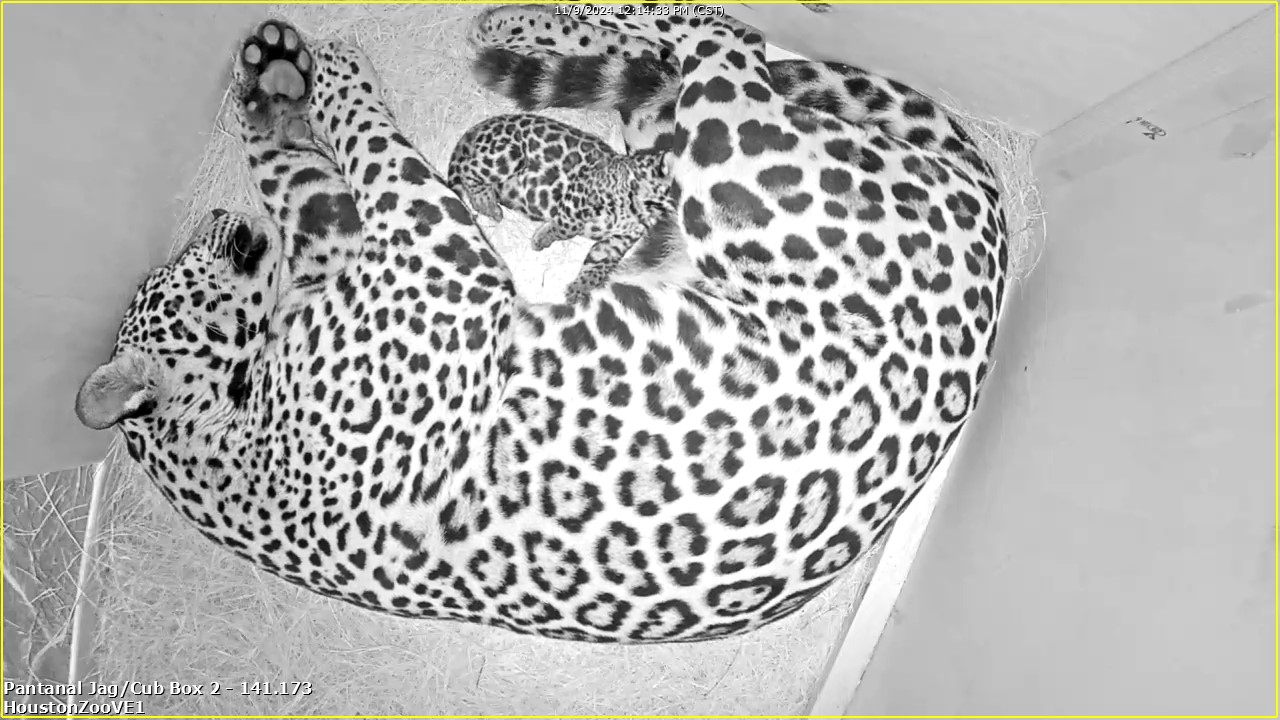Oh Baby! Houston Zoo’s Purr-fect New Addition
Houston Zoo Welcomes Adorable Baby Jaguar

The Houston Zoo’s jaguar family has grown by a few spots! In the early morning hours of Nov. 6 Vida, the Zoo’s female jaguar, welcomed a beautiful baby boy jaguar. Vida has embraced her role as a first-time mom by being protective and nurturing of her new cub. Shortly after birth, the cub was seen to be nursing by the team’s monitoring cameras. A few days after he was born, the Zoo’s medical team gave him a comprehensive check-up and his weight clocked in at a healthy 2.5 pounds. Mom and baby will spend time behind the scenes bonding before the cub makes his public debut. In the meantime, guests can see dad Tesoro in his habitat in South America’s Pantanal. The cub will soon be named by a Zoo supporter who placed the winning bid to name the cub during a live auction at the recent Zoo Ball – Wings of Wonder presented by Phillips 66.
Jaguars are the largest cats in the western hemisphere and the third largest overall; only lions and tigers are bigger. Jaguars are native to south and central America and can be found in the Amazon basin. Unlike other cats, jaguars do not avoid water and are quite good swimmers. Jaguars live alone and define their territories by marking areas with their waste or clawing trees.
The name jaguar is derived from the native American word yaguar which means “he who kills with one leap.” Jaguar’s hunting tactics include climbing trees to prepare an ambush. They have very powerful jaws capable of crushing a skull in one bite.
With the influx of local tourists, local communities can benefit monetarily from the wild animals they share their home with, but some tour operators get too close interrupting their behaviors leading to potential conflict and population declines. Guests can help save wild jaguars by visiting Vida, Tesoro and their new cub at the Houston Zoo. A portion of each Zoo admission and membership helps the Zoo support Projecto Ariranhas, a Brazilian conservation partner who train local guides to lead jaguar-safe tours.
